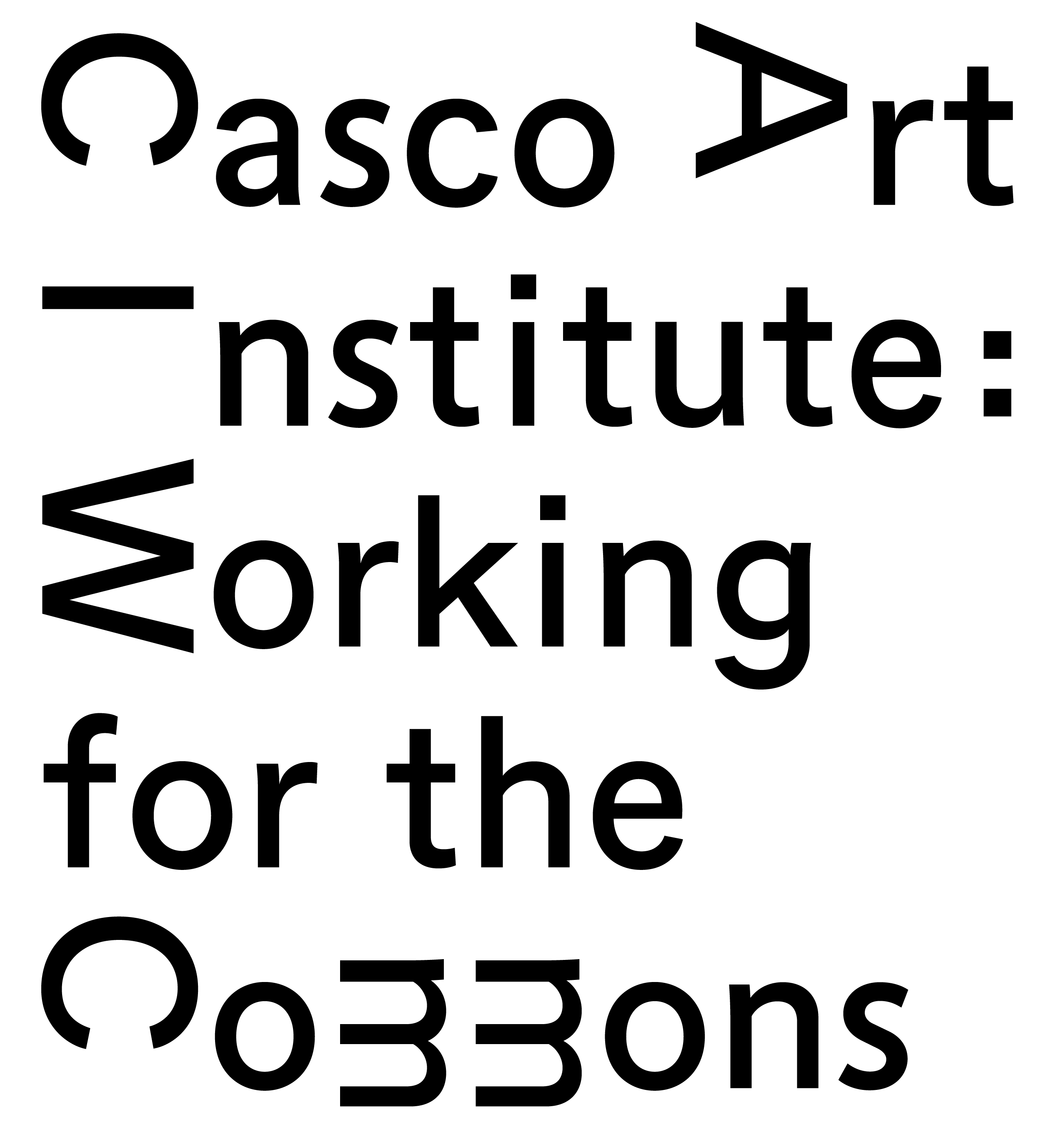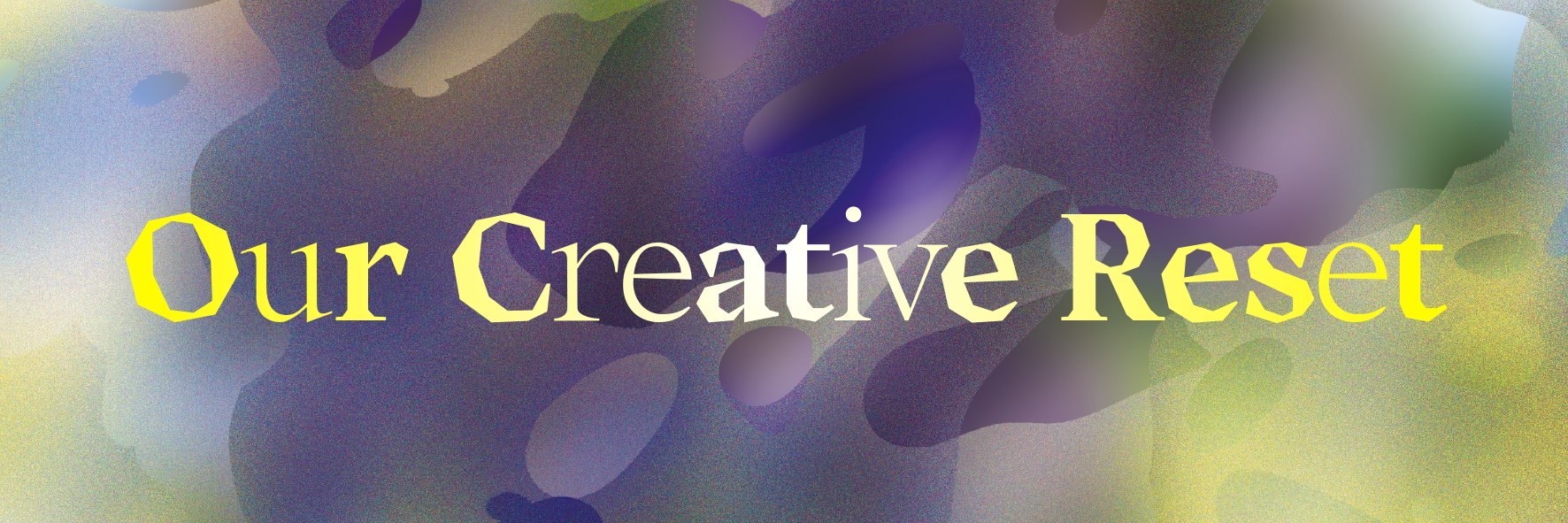From September 27th until October 1st, 2021, the Institute of Network Cultures, Hotel Maria Kapel (Hoorn), and Platform BK organized an autumn camp for young art workers. Twenty recently graduated artists, designers, and theatre makers were invited to five days of conversations, workshops, and communal activities. Each day, we addressed one important theme of working and living in the Dutch cultural sector: from working in the gig economy and money flows in the cultural sector, to experiments with crypto, staying happy and healthy, and durable self-organization. The results were collected and distributed in the Post-Precarity Zine: Toolbox for Beginning Artists, videos of lectures, and a series of blog posts (for an overview, see Our Creative Reset homepage). Here, you will find an overview of the program, descriptions of the workshops, an overview of the results, and a list of resources.
Program
Day 1 – Monday 27 September: Working in the gig economy
09:30-10:00 – Arrival
10:00-10:30 – Welcome, tour through Hotel Maria Kapel by Tirza Kater and Annelien de Bruin (HMK)
10:30-12:30 – Workshop ‘Working in the Gig Economy’ by Alina Lupu and Silvio Lorusso
12:30-14:00 – Lunch, introduction in the artistic program of HMK
14:00-14:30 – Introduction to zine-making by Morgane Billuart (INC)
14:30-16:00 – Working together
16:00-17:00 – Yoga
Day 2 – Tuesday 28 September: Money Flows in the cultural sector
10:00-12:30 – Workshop by on commoning perspectives on public funding by Marianna Takou (Casco)
12:30-14:00 – Lunch, introduction to the Fair Practice Code (Platform BK)
14:00-15:00 – Discussion on private money in the arts with Timo Demollin
15:00-16:30 – Working together
16:30-18:00 – Collective film program, guided by PLOKTA
Day 3 – Wednesday 29 September: Experiments with crypto
10:00-10:30 – Introduction by Geert Lovink (INC)
10:30-12:30 – Workshop on art and crypto by Rosa Menkman
12:30-14:00 – Lunch, conversation with Marisella de Cuba (We Promise Hoorn)
14:00-15:30 – Working together
15:30-18:00 – Art walk through Hoorn, guided by Martijn Aerts
Day 4 – Thursday 30 September: Staying happy and healthy
10:00-12:30 – Workshop ‘Curriculum Veto’ by Art Goss
12:30-14:00 – Lunch, conversation with Wethouder Samir Bashara
14:00-15:30 – Roleplay ‘An Analogy: Art and the Immune System’ by The Long Tail of Art (Caradt)
15:30-17:00 – Guided tour through the West-Fries Museum
Dag 5 – Friday 1 October: Durable self-organization
10:00-10:30 – Lecture ‘A Criticism of the Cultural Sector’ by Sara Strandvad (University of Groningen)
10:30-13:00 – Workshop on the artistic biotope by Koen Bartijn (Platform BK)
13:00-14:30 – Lunch, conversation with Jip de Ridder (CommonEasy)
14:30-16:00 – Working together
16:00-17:00 – Reflection
17:00-20:00 – Communal meal
Workshop descriptions
Working in the Gig Economy, by Alina Lupu and Silvio Lorusso
Most of us have used Freelancer.com, Fiverr, Helpling, Uber, and Thuisbezorgd – either as users or as workers. In this workshop, Silvio Lorusso and Alina Lupu. together with the participants, will create a checklist of all the different perspectives one can take to analyze these platforms: from interface design to the origin stories of the founders, and from stock markets to flagship offices and public campaigns. This generalizable methodology for looking at gig economy platforms will help you, the cultural worker, to consider how (not) to use gig platforms, and how to manipulate and subvert their structures.
Commoning Perspectives on Public Funding, by Casco
Casco Art Institute: Working for the Commons is an experimental platform in Utrecht, where art invites a new vision of society. Casco has a long track-record of handling public funding as a common pool resource. Good examples are the Parasite Lottery, the Arts Collaboratory, and the recent Covid Solidarity Fund. In their workshop, Casco explains the (practical) principles behind these examples, and how they can be used by freelance cultural workers.
Experiments with Crypto, by Rosa Menkman
Earlier this year, NFT’s briefly dominated the world news. Cryptocurrencies keep skyrocketing and are here to stay. But it remains unclear how smart contracts and crypto can actually serve artists (instead of contributing to the destruction of the environment). In this workshop, Dutch artist, educator, and researcher Rosa Menkman will share the insights from her studies of crypto and netart from both critical and practical perspectives. Participants learn about the workings of these technological phenomena and the way they can be used to support cultural practices. Is it possible to use the online markets, while making the things you want to make?
Curriculum Veto, by Art Goss
Curriculum Veto takes as its starting point the CV: the ultimate, universally recognized, individualized standard that conditions labor. The abbreviation for the Latin ‘curriculum vitae’, or, ‘the course of life’, its name implies a consolidation of life and work; Curriculum Veto starts by critically investigating this conceptual entanglement. Curriculum Veto stems from the idea that it is urgent and insightful to consider the many forms of ‘wasted’ art-work; the labor that falls between the lines of the CV-as-standard. In this workshop, participants will index unexpected assets to their artistic practice like (un)productivities, care work, (un)related work, activism, rejections, boycotts, and refusal.
The Artistic Biotope, by Platform BK
Finding balance in one’s practice is notoriously hard for cultural workers. Where do the professional sphere stop and the private begin? Pascal Gielen has argued that the dichotomy between private and professional is too simple to create a healthy ‘artistic biotope’. Instead, a balance should be struck between four domains: the domestic, the civil, the market, and the peers. In this workshop, Koen Bartijn will guide the participants through a series of exercises to map the inventions needed to create a better balance – for individual participants, but also for the collective.
Results
The knowledge generated and shared during the program was be gathered in an open-source publication, the Post-Precarity Zine, that was developed in collaboration with the HvA Learning Community Critical Making & Learning Through Design, and freely distributed.
In the aftermath of the Post-Precarity Autumn Camp, we decided to write an open letter to Dutch art academies, demanding economically responsible art education. You can read the letter here.
Participant Jue Yang wrote an article on the Post-Precarity Autumn Camp for Metropolis M, which you can read here.
Resources
This thematically organized list of resources was compiled around the Post-Precarity Camp:
Corona Reset
Baelen, Carlo van. ‘Noodfondspijlen naast het cultuurdoel’, Rekto:Verso, 26 December 2020, https://www.rektoverso.be/artikel/noodfondspijlen-naast-het-cultuurdoel.
Eckenhaussen, Sepp. ‘Post-precariteit: Drie principes voor cultuurwerk, beleid en solidariteit na Covid19’, Institute of Network Cultures, 3 June 2021, https://networkcultures.org/longform/2021/06/03/post-precariteit/.
Goudriaan, René et al. Ongelijk getroffen, ongelijk gesteund: effecten van de coronacrisis in de culturele sector. Amsterdam: Boekman Stichting, 2021.
Landau, Frederike. ‘Cultural Infrastructures of Vulnerability: Reflections on Care during and after COVID-19’, Arts of the Working Class, 4 June 2020, http://artsoftheworkingclass.org/text/cultural-infrastructures-of-vulnerability.
Kinsella, Eileen. ‘Ireland Will Soon Pay Arts and Culture Workers a Basic Income to Help the Sector Bounce Back From the Pandemic’, ArtNet, 7 January 20200, https://news.artnet.com/art-world/ireland-basic-income-arts-culture-workers-2057413.
Overbergh, Ann. ‘Kunsten na corona’, Kunstenpunt, October 2021, https://www.kunsten.be/publicaties/kunsten-na-corona/.
Warne Thomas, Charlotte. ‘Artists as Workers’, Autonomy, November 2021, https://autonomy.work/portfolio/artistsasworkers/.
Boekman Stichting, ‘Coronaplatform: voor onderzoeksvragen en kennisdeling in cultuur’, https://www.boekman.nl/thema/coronaplatform/.
Working in the Gig Economy
Benmiloud, Hadjar. ‘Een nieuwe verloren generatie’, De Groene Amsterdammer, 28 november 2018, https://www.groene.nl/artikel/een-nieuwe-verloren-generatie.
Hao, Karen. ‘The AI Gig Economy Is Coming for You’, MIT Technology Review, 31 May 2019, https://www.technologyreview.com/2019/05/31/103015/the-ai-gig-economy-is-coming-for-you/.
Ravenelle, Alexandrea J. Hustle and Gig: Struggling and Surviving in the Sharing Economy, Berkeley: University of California Press, 2019, https://www.are.na/block/12947446.
Salemy, Mohammad. ‘The End of Artists’, 2 December 2019, Arts of the Working Class, http://artsoftheworkingclass.org/text/the-end-of-artists.
Politics of Precarity
Abbing, Hans. Why Are Artists Poor? The Exceptional Economy of the Arts. Amsterdam: Amsterdam University Press, 2008.
Aranda, Julieta, Brian Kuan Wood, and Anton Vidokle (eds). Are You Working Too Much? Post-Fordism, Precarity, and the Labor of Art. New York: Sternberg Press, 2011.
Hewison, Robert. ‘Freelance Workers Are the Backbone of the Art World – But How Are They Expected to Survive on a Pittance?’, The Art Newspaper, 5 March 2021, https://www.theartnewspaper.com/comment/what-about-the-freelancers.
Lorey, Isabell. State of Insecurity: Government of the Precarious. London & New York: Verso, 2015.
Lorusso, Silvio. Entreprecariat: Everybody Is an Entrepreneur, No One Is Safe. Eindhoven: Onomatopee, 2019.
Lupu, Alina. ‘Before We Knew What Hit Us’, Platform BK, 24 April 2020, https://www.platformbk.nl/en/before-we-knew-what-hit-us/.
Morgan, Geogre, and Pariece Nelligan. The Creativity Hoax: Precarious Work and the Gig Economy. London: Anthem Press, 2018.
Rasterhof, Claartje, and Bjorn Schrijen. ‘Hoe precair is werk in de cultuursector? In gesprek met kunst- en cultuurfilosoof Thijs Lijster’, Boekmanstichting, 27 May 2020, https://www.boekman.nl/actualiteit/hoe-precair-is-het-werk-in-de-cultuursector/.
‘Werktitel: On Labour and People in the Arts’, podcast series by Zoë Dankert and Alix de Massiac, transcripts available in English, https://www.werktitel.org/.
Winkel, Camiel van, Pascal Gielen, and Koos Zwaan. De hybride kunstenaar: De organisatie van de artistieke praktijk in het postindustriële tijdperk. Den Bosch & Breda: AKV|St.Joost, 2012, https://www.inholland.nl/media/10709/eindrapporthybridiseringdef.pdf.
Money Flows in the Cultural Sector
Cascone, Sarah. ‘Twitter C.E.O. Jack Dorsey Just Gave $3.5 Million to San Francisco’s Experimental Program Offering Guaranteed Income for Artists’, ArtNet, 24 May 2021, https://news.artnet.com/art-world/twitter-jack-dorsey-guaranteed-artist-income-san-francisco-1972602.
Demollin, Timo. ‘The Philanthropy Trap’, Platform BK, 24 March 2021, https://www.platformbk.nl/en/the-philanthropy-trap/.
Ribben, Arjen and Pieter van Os. Tussen kunst en cash: Hoe geld de Nederlandse geldwereld corrumpeert. Amsterdam: Das Mag, 2021.
Steenbergen, Renée. De nieuwe mecenas: Cultuur en de terugkeer van het particuliere geld. Amsterdam: Business Contact, 2008.
‘The future of the art market’, Creative United, https://www.creativeunited.org.uk/services/the-future-of-the-art-market/.
Experiments with Crypto
‘A Guide to Ecofriendly CryptoArt’, https://github.com/memo/eco-nft.
Carys Anderson, ‘Brian Eno on NFTs: “Now Artists Can Become Little Capitalist Assholes as Well”‘, Consequence Sound, 20 December 2021, https://consequence.net/2021/12/brian-eno-nfts-little-capitalist-assholes/.
Bont, Malu de. ‘Zo boutw u een waardevolle kunstcollectie op: “Mijn NFT kostte €425 en was plots €60.000 waard”‘, Quote Nederland, 13 November 2021, https://www.quotenet.nl/zakelijk/a38197314/zo-bouwt-u-een-waardevolle-kunstcollectie-op-mijn-nft-kostte-euro425-en-was-plots-euro60000-waard/.
Dal Dosso, Silvia. ‘Cats, Frogs and Cryptoartists: What if Auteur .jpgs Become a Luxury Good’, Institute of Network Cultures, https://networkcultures.org/longform/2021/03/11/cats-frogs-and-cryptoartists-what-if-auteur-jpgs-become-a-luxury-good/.
‘Episode V. Toward a New Ecology of Crypto Art: A Hybrid Manifesto’, Flash Art, The Uncanny Valley series, 26 February 2021, https://flash—art.com/2021/02/episode-v-towards-a-new-ecology-of-crypto-art/.
Lovink, Geert, and Alexander Estorick, ‘Crypto Art Interview’, Institute of Network Cultures, 26 February 2021, https://networkcultures.org/geert/2021/02/26/geert-lovink-alexander-estorick-crypto-art-interview/.
Menkman, Rosa. The Glitch Moment(um), Amsterdam: Institute of Network Cultures, 2011.
Menkman, Rosa. ‘Remarks on Crypto-Art’, MoneyLab, 3 March 2021, https://networkcultures.org/moneylab/2021/03/03/remarks-on-crypto-art-by-rosa-menkman/.
Teijen, Lena van. ‘Op zoek naar de Robin Hoods van de crypto-kunst: Een gesprek met Inte Gloerich’, Metropolis M, 23 April 2021, https://www.metropolism.com/nl/features/43307_op_zoek_naar_de_robin_hoods_van_de_crypto_kunst_een_gesprek_met_inte_gloerich.
Wisecrack, ‘How NFTs Explain Everything Wrong with Art’, YouTube, 14 April 2021, https://www.youtube.com/watch?v=qjQPCnjM3Bg.
Staying Happy and Healthy
‘50 Ways to Take Care of Yourself in the Arts’, Arts Hub, 1 November 2015, https://www.artshub.com.au/2015/11/01/50-ways-to-take-care-of-yourself-in-the-arts-249726/.
‘Assessing Risk: On Strategies for Health, Safety, and Welfare Within Arts Practice’, Kunstlicht, vol. 41, no. 4, 2020, https://tijdschriftkunstlicht.nl/vol-41-no-4-2020-assessing-risk-on-strategies-for-health-safety-and-welfare-within-arts-practice/.
Billuart, Morgane. ‘New Mores, What Now?’, Idealenfabriek, 28 May 2021, https://www.idealenfabriek.nl/nl/Nieuws/Een-nieuwe-moraal,-wat-nu?.
Durable Self-Organization
Institute of Radical Imagination. ‘Art for UBI Manifesto’, Institute of Radical Imagination, 16 January 2021, https://instituteofradicalimagination.org/2021/01/16/art-for-ubi-manifesto-launching-campaign/.
Choi, Binna. ‘Living Organisation: That Is, Self-Organisation’, Autonomous Fabric, 1 March 2018, https://autonomousfabric.org/text/living-organisation-that-is-self-organisation.
Dillemuth, Stephan, Anthony Davies, and Jakob Jakobsen, ‘There Is No Alternative: The Future Is Self-Organised’, What’s Next?, 2005, http://whtsnxt.net/042.
Kraaijeveld, Joram. ‘Reinventing Solidarity’, ArtEZ Studium Generale, 6 January 2020, https://studiumgenerale.artez.nl/nl/studies/all/blog/solidariteit+heruitvinden+reinventing+solidarity/.
Lijster, Thijs. Verenigt U! Arbeid in de 21ste eeuw. Amsterdam: Prometheus, 2019.
Wagley, Catherine. ‘The Art Angle Podcast: How the Artist Pension Trust Became a Gigantic Fiasco’, ArtNet, 14 January 2022, https://news.artnet.com/multimedia/the-art-angle-podcast-apt-2060002?utm_content=buffer.
Art Education Redefined
Art School: Propositions for the 21st Century, edited by Steven Henry Madoff. Cambridge: MIT Press, 2009.
Boessen, Judith. ‘What’s Wrong with the Art Academy? In Search of Flaws in Art Education’, Mister Motley, 7 January 2021, https://www.mistermotley.nl/art-everyday-life/what%E2%80%99s-wrong-art-academy-%E2%80%93-search-flaws-art-education.
Meineche Hansen, Sidsel and Tom Vandeputte, Politics of Study. No place: Open Editions, 2015, https://openeditions.com/product/politics-of-study/.
Teran, Michelle and Florian Cramer. ‘Letters From Dystopian and Utopian Futures of Art Education’ in Hoger beroepsonderwijs in 2030: Toekomstverkenningen en scenario’s vanuit Hogeschool Rotterdam, ed. Gijsbtertse et al. (Rotterdam: Hogeschool Rotterdam Uitgeverij, 2020), https://www.hogeschoolrotterdam.nl/onderzoek/hoger-beroepsonderwijs-in-2030/artikelen/letters-from-dystopian-and-utopian-futures-of-arts-education/.
‘The Roadmap to Equality in the Arts in the Netherlands: A Conference That Addresses the Under-Representation and Misrepresentation of Women artists, WOC and Nonbinary Artists’, ArtEZ Studium Generale, January 2020, https://studiumgenerale.artez.nl/nl/agenda/the+roadmap+to+equality+in+the+arts+in+the+netherlands/.
Westwood, Alyxandra. ‘How Student-Led Artist Initiatives Are Changing the Institution from Within’, Metropolis M, 11 October 2021, http://www.metropolism.com/en/features/44884_how_student_led_artist_initiatives_are_changing_the_institution_from_within.
Digital and Hybrid Alternatives
‘Cultuur zonder fysieke aanwezigheid: De digitale alternatieven’, DEN, https://www.den.nl/digitaal-als-alternatief-voor-fysiek.
Natalie Dixon, Klasien van de Zandschulp, and Anneli Vanenburg, Hybrid Spaced: Exploring the In-Between: Intimate Connections Between Online and Physical Audiences Through Gossip and Dance. Amsterdam: Affect Lab, 2021.
‘Dossier 8: Hybrid Events’, The Hmm, https://thehmm.nl/dossier/dossier-8-hybrid-events/.
Knol, Jan Jaap, ‘Digitaal is “here to stay”: Hoe gaat dat in de toekomst verder?’, Boekman, 6 December 2021, https://www.boekman.nl/actualiteit/digitaal-is-here-to-stay/.
‘Overzicht van online culturele intiatieven in tijden van de coronacrisis: Archief 2021’, Boekman, January-July 2021, https://www.boekman.nl/actualiteit/online-cultureel-initiatieven/.
Dutch Art Policy
Commissie-Borstlap, ‘In wat voor land willen wij werken?’. Den Haag: Rijksoverheid, 2020.
Sociaal Economische Raad and Raad voor Cultuur, Passie gewaardeerd: Versterking van de arbeidsmarkt in de culturele en creatieve sector. SER, 2016.
European Solidarity Networks
Loots, Ellen, Kaja Piecyk en Walter van Andel. ‘Collectieve emancipatie als de route naar een meer eerlijke beloning in de kunsten?’, Creatief Ondernemerschaplab, https://www.creatiefondernemerschaplab.nl/columns/column-collectieve-emancipatie-als-de-route-naar-een-meer-eerlijke-beloning-in-de-kunsten/.
Reshape: A Workbook to Reimagine the Art World. Brussels: Flanders Arts Institute, 20221, https://reshape.network/uploads/prototype_config/document/1/RESHAPE_A_Workbook_to_Reimagine_the_Art_World.pdf.
Research context
The Post-Precarity Autumn Camp is the kick-off event for the new INC research strand Our Creative Reset, which explores new principles and strategies for cultural work, policy, and solidarity after Covid19. A programmatic text (Dutch only) about this subject was previously published as an INC Longform, which can be read here. The event was organized by the Institute of Network Cultures, in collaboration with Hotel Maria Kapel and Platform BK. The project is supported by the Centre of Expertise for Creative Innovation (CoECI).

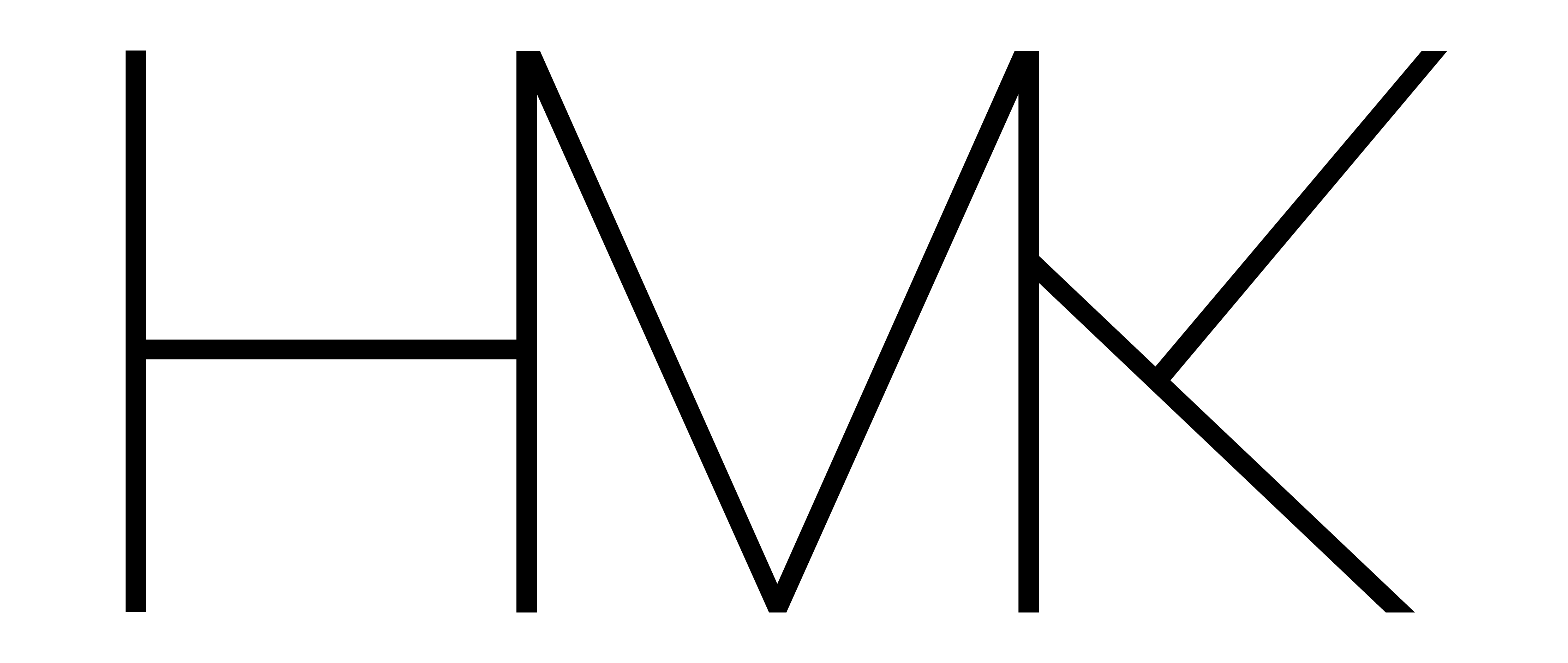
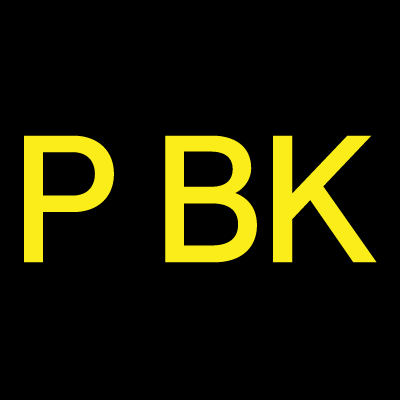
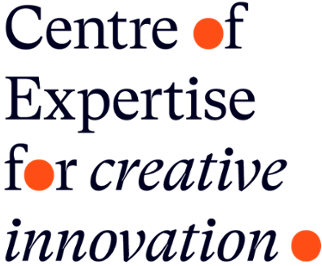
Project partners
Learning Community Critical Making & Learning Through Design
